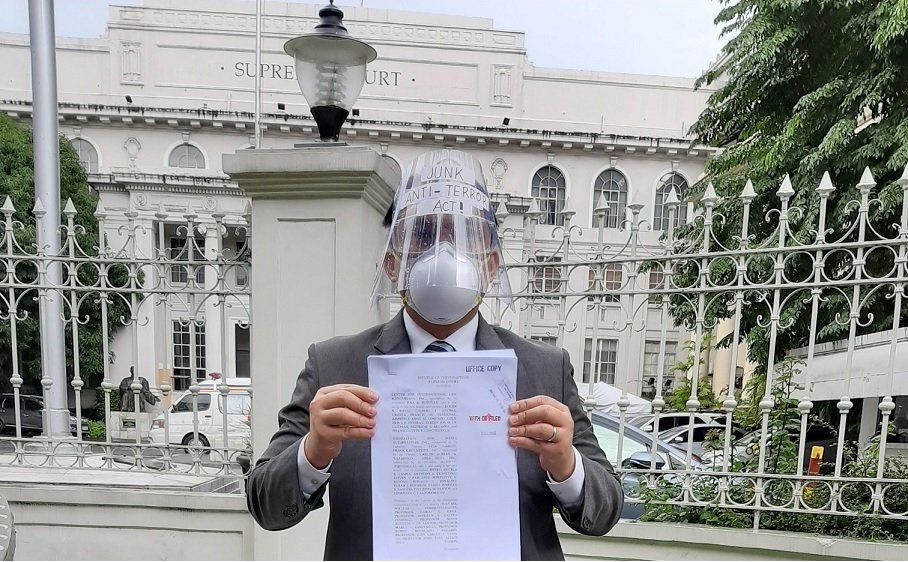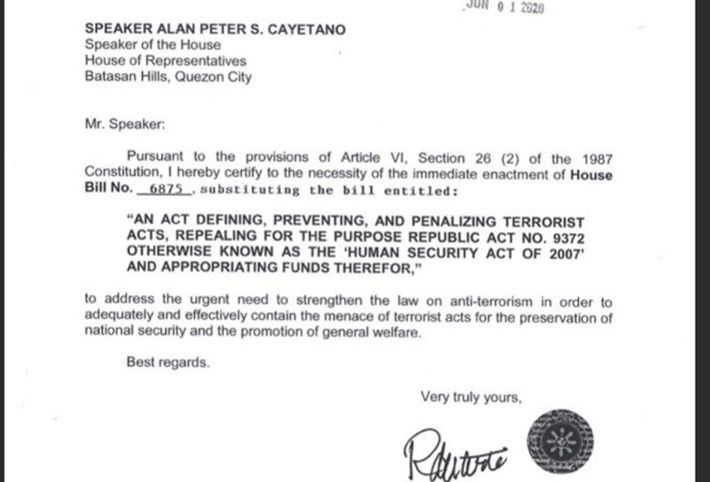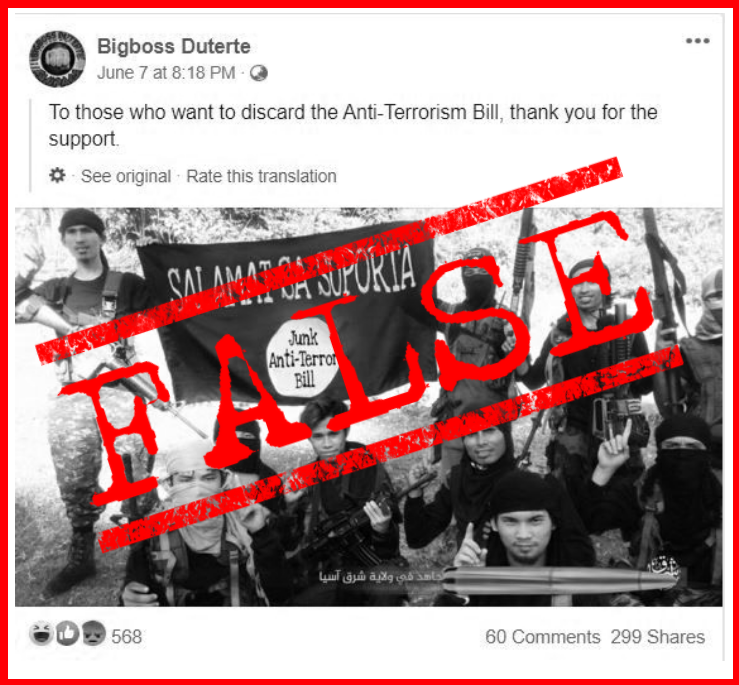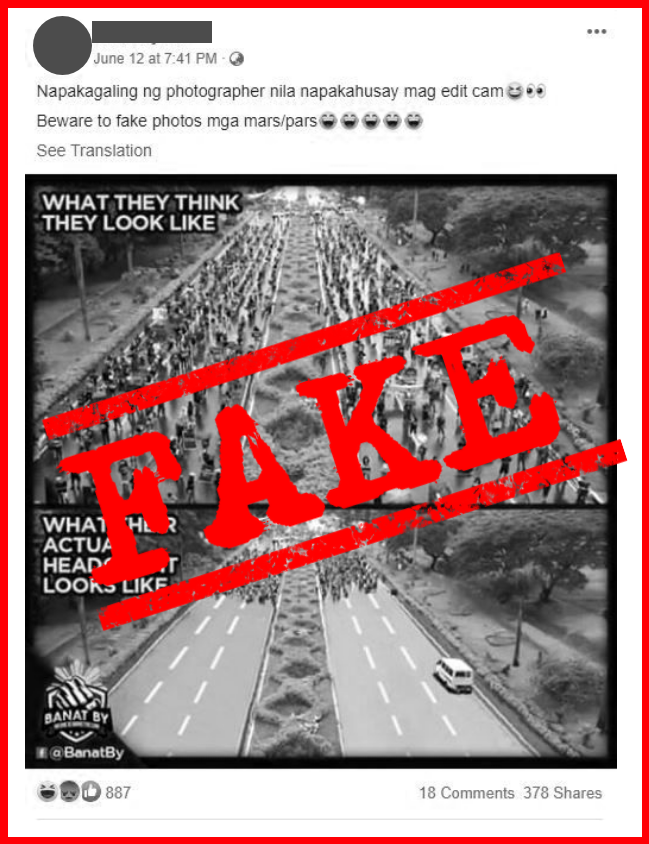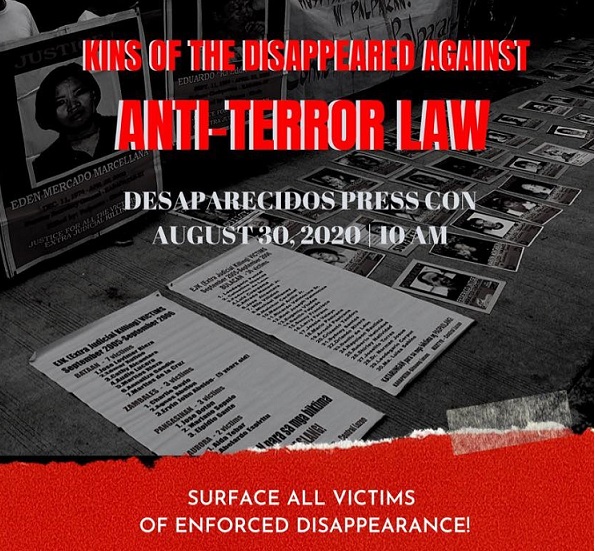Lawyers, professors, and journalists filed a motion for partial reconsideration anew before the Supreme Court (SC), praying that the magistrates strike down six provisions of the controversial Anti-Terrorism Act (ATA) of 2020 for “being repugnant to the Constitution and the Philippines’ obligations under International Law.”
In a 42-page petition filed March 4, lawyers from the Center of International Law (CenterLaw), professors of the Lyceum of the Philippines University College of Law, Foundation for Media Alternatives, and VERA Files asked the High Court “to uphold its sacred constitutional duty to protect the institutional independence and integrity of the Judicial Department by striking down provisions of the Anti-Terrorism Act that unconstitutionally empower the Executive Department, acting through the Anti-Terrorism Council, to exercise the judicial power and authority solely vested by the 1987 Constitution upon the Judiciary.”
The groups also argued that select provisions of the ATA clash with the Philippines’ duty to uphold people’s freedom of speech and other related rights, together with the “broader network” of international laws and obligations.
Motion for Partial Reconsid… by VERA Files
The issues that the groups forwarded for reconsideration are:
- Whether the “main part” of Section 4, which defines and penalizes the crime of “terrorism,” is void for its vagueness or overbroad in violation of the constitutional right to due process, free speech and expression, right to be informed of the nature and cause of a person’s accusation, and non-detention of a person based on their political beliefs;
- Whether Sections 5 to 14, which defines and penalizes threats to commit terrorism, planning, training, preparing, and facilitating terrorism, conspiracy, proporsal, inciting to terrorism, material support, and other related provisions, are void for vagueness or overboard in violation of one’s right to due process, free speech and expression, as well as the freedom of religion, association, and non-detention solely based on a person’s political beliefs and academic freedom;
- Whether the powers of the ATC to designate as “terrorist” individuals, groups, and organizations, and their power to arrest and detain without judicial warrant “based on mere suspicion” are unconstitutional for encroaching judicial power and violating a person’s right to due process
- Whether Sections 35 and 36, which gives the Anti-Money Laundering Council the authority to probe bank deposits and freeze assets, violate the separation of powers (judicial) and a person’s right to due process and unreasonable searches and seizures;
- Whether Section 49, which applies the law to those who would commit “acts of terrorism” outside the territorial limits of the Philippines, violates the freedom of association and the prohibition to retroactively criminalize activities or behaviors
The petitioners have also asked the high court to partially reverse its decision on Dec. 7, 2021, which declared only two provisions of ATA as unconstitutional. (Read SC declares two provisions of the ATA unconstitutional, upholds the rest)
The petitioners are appealing to the magistrates to declare as unconstitutional the main part of the following Sections: 4, 5, 6, 8, 9, 10, 12; and the entirety of the Sections 25, 29, and 49 of the ATA, as well as their counterparts under the implementing rules and regulations of the law.
The petitioning groups stressed that Sec. 4 of the ATA, which defines “terrorism,” remains unclear in defining which “acts” constitute terrorist acts.
The groups argued that the law must have a “well-defined classification” of specific actions that need to be punished, and it must avoid “bold and sweeping statements” such as “acts” or “acts intended to cause” for they argue that these are void for their vagueness and broadness.
Further, they explained that in defining “terroristic acts,” the Philippines’ foreign neighbors use specific language with qualifiers that such actions need to have caused violence or endangerment.
If Sections 25 and 29 of the ATA are declared not unconstitutional, the groups prayed that as an alternative, the SC must issue and promulgate rules that oversee the designation as “terrorist” of individuals, groups, and organizations, and one’s detention without a judicial warrant.
